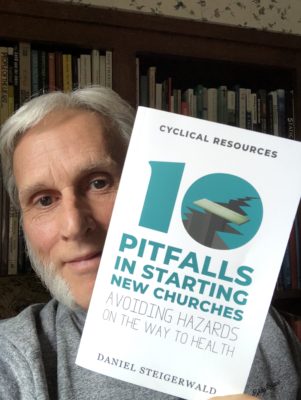Staying true to the Church’s vocation in the world

Not long ago I participated in a webinar with some pastors and church planters. We were interacting over how existing and newly-forming churches can grow in their engagement with their respective local contexts. About half way through, I realized we were really talking about how to help spiritual communities sustain that outward impulse into culture. As people interacted, I started scribbling down some thoughts. What would I recommend that leaders do to counter this tendency of churches to turn inward, to cater to the needs of their stakeholders or members without balanced attention to the church’s vocation in the world? Here’s what I came up with:
1. Enhance missional discipleship – train, model and coach/mentor in missional formation (both its theology and its practice). Our work of discipleship ought to also include those outside faith who are moving in the direction of Christ/Love. In other words, pre-discipleship is perhaps best viewed as part of our work of discipling others, as this allows us to naturally include non-Christians and not only those identified as stakeholders/members of the church. If we truly believe John 3:16 – that we have a tireless, pursuing God – the bounded set of God’s covenant people must operate within a centered set of all those moving toward God/Love by the Spirit’s drawing.
As a leader, implement your own basic regimen of listening, connecting and serving in your local neighborhood and area in which your church community is embedded. This will not only help form you, but it will give credibility to your missional discipleship!
2. Give visibility to stories and outcomes that help people see what missional means and what progress looks like. Too often intuitive leader types speak at 20000 feet and fail to deliver on specifically describing to more concrete get-it-done types the sort of metrics needed to build sustainable momentum. Giving people concrete illustrations of missional living out in real-life, plus some representative metrics, does not mean imposing metrics. The next step is helping leadership teams discern their own unique missional pathways/practices, with special attention to co-discerning how they will gauge progress.
3. Identify those who have apostolic, prophetic or evangelistic orientations, and bring them to the table to help drive/sustain the outward impulse. Alan Hirsch’s new book, 5Q, is worth getting to get a bead on the A.P. E. profiles. Of course, as these outward-oriented leaders are identified, they should also be embedded in primary leadership conversations involving the full spectrum of Eph. 4:11.
4. Invite locals to tell you what they really think about church and Christians and God and spirituality. Oftentimes, Christian authors and academics and conference circuit speakers tell us what people outside the church are thinking when they have few friendships with even their own non-Christian neighbors. Don’t just listen to the supposed culture experts, listen to your friends and community leaders who don’t (yet) know Jesus.
5. Work with your leaders to shift the center of gravity of the church off of Sunday (or whenever your primary gathered life is expressed). Liturgy can be beautiful and transformative, and I’m all for it. What I’m not for is effectively de-prioritizing our calling/ministry in the world because we spend way too much time, money and energy running [usually] Sunday events for church members.
6. Create belonging and spiritual-practicing spaces for non-Christians within the sphere of the church. In many cases, we help nonChristians or those outside church find places to belong and build friendships with people who are committed to following Jesus. But we drop the ball by not providing or not pointing to opportunities to co-participate in activities/practices that cultivate shalom in our wider context. Both belonging and participating in activities that form the soul are key stage-setters for people coming to grips with and believing the gospel.
7. Preach the unchanging strand of the church’s collective calling – to be a tangible sign, foretaste and instrument of the Kingdom of God. Remember, as Lesslie Newbigin so often said, the congregation is the best hermeneutic (translator) of the gospel, not only individuals proclaiming it. Let me recommend a great new book for your 2019 reading on this:
Avoid creating a church community culture that extracts members from their natural networks, rhythms and activities among those outside the church. If you don’t give attention to the above, over time your people will no longer be operative in their biblical calling to be “resident-aliens” who interact with their worlds. They will essentially become “aliens” or egg-heads in the world, and that stunts both their discipleship under Christ and their capacity to learn/benefit from what God is doing outside the walls of the church.



